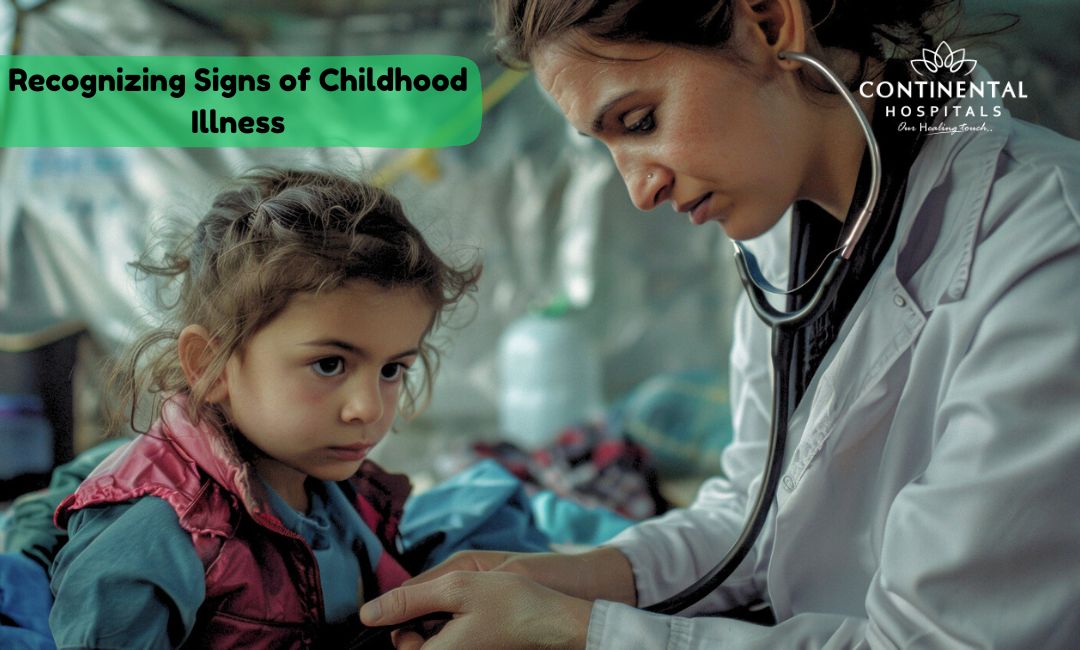Recognizing signs of childhood illness is vital for parents as it enables prompt treatment and improves outcomes for children. Early detection allows for timely intervention, preventing the illness from worsening and aiding in faster recovery. Additionally, understanding the significance of identifying these signs empowers parents to take proactive measures in promoting their child's health. By encouraging healthy habits such as a balanced diet, regular exercise, sufficient sleep, and proper hygiene practices, parents can bolster their child's immune system and reduce the risk of illness. Implementing strategies like routine medical check-ups, vaccinations, and environmental hygiene further contribute to keeping children healthy and preventing the spread of infections. Overall, parents who are vigilant about recognizing signs of illness, promote healthy habits, and implement preventive measures can significantly impact their child's well-being and ensure they thrive in both body and mind.
Importance of Recognizing Early Signs of Childhood Illness
Early detection of childhood illness is crucial for timely intervention and management. Here's why recognizing these signs is so important:
Prompt Treatment: Identifying symptoms early allows for prompt medical attention, which can prevent the illness from worsening and aid in faster recovery.
Preventing Complications: Some childhood illnesses, if left untreated, can lead to complications. Recognizing signs early can help prevent these complications from occurring.
Reducing Spread: Certain illnesses, such as contagious infections, can spread rapidly among children. Early recognition and isolation of sick children can help reduce the spread within communities and schools.
Peace of Mind: Recognizing signs of illness early provides parents with peace of mind, knowing that they are taking appropriate steps to address their child's health concerns.
Encouraging Healthy Habits in Children
In addition to recognizing signs of illness, promoting healthy habits in children is essential for maintaining overall well-being. Here are some ways to encourage healthy habits:
Balanced Diet: Ensure that your child consumes a balanced diet rich in fruits, vegetables, whole grains, lean proteins, and dairy products. Limit sugary snacks and beverages, and encourage drinking plenty of water.
Regular Exercise: Encourage your child to engage in regular physical activity, such as outdoor play, sports, or recreational activities. Aim for at least 60 minutes of moderate to vigorous activity every day.
Sufficient Sleep: Make sure your child gets adequate sleep according to their age. Establish a consistent bedtime routine and create a conducive sleep environment free from distractions.
Proper Hygiene: Teach your child good hygiene practices, including regular handwashing with soap and water, covering their mouth and nose when coughing or sneezing, and avoiding close contact with sick individuals.
Routine Medical Check-ups: Schedule regular visits to the pediatrician for well-child check-ups and vaccinations. These visits allow healthcare providers to monitor your child's growth and development and address any health concerns early on.
Strategies for Keeping Children Healthy
In addition to promoting healthy habits, implementing strategies to prevent illness can help keep children healthy and reduce the risk of infections. Here are some strategies to consider:
Immunizations: Ensure that your child receives all recommended vaccinations according to the schedule provided by healthcare providers. Vaccinations are essential for preventing serious illnesses and protecting children from infectious diseases.
Environmental Hygiene: Keep your home environment clean and hygienic to reduce exposure to germs and pathogens. Regularly disinfect commonly touched surfaces, such as doorknobs, light switches, and toys.
Limit Exposure to Sick Individuals: Minimize your child's exposure to individuals who are sick or showing symptoms of illness, especially during flu season or outbreaks of contagious diseases.
Teach Healthy Habits: Educate your child about the importance of handwashing, covering their mouth and nose when coughing or sneezing, and avoiding sharing personal items with others.
Manage Stress: Help your child manage stress and anxiety, as chronic stress can weaken the immune system and make them more susceptible to illness. Encourage relaxation techniques, such as deep breathing exercises or mindfulness activities.
conclusion
In conclusion, safeguarding the health and well-being of children requires a multifaceted approach that encompasses early recognition of illness, promotion of healthy habits, and proactive preventive measures. By remaining vigilant for signs of illness, parents can swiftly address health concerns, leading to better outcomes for their children. Moreover, instilling healthy habits from an early age, such as nutritious eating, regular exercise, and proper hygiene, sets a foundation for lifelong well-being. Equally important is the implementation of preventive strategies like routine medical check-ups and vaccinations, which bolster children's immune systems and shield them from potential threats. Through these concerted efforts, parents can create a nurturing environment where their children not only thrive but also develop resilience against illnesses. Ultimately, the collective commitment to prioritizing children's health ensures that they grow and flourish, enabling them to lead vibrant and fulfilling lives.
1. Staying Healthy in the Rainy Season
2. Influenza (Flu) in Children
3. Importance of Flu Vaccines: Myth vs. Fact
.webp)







